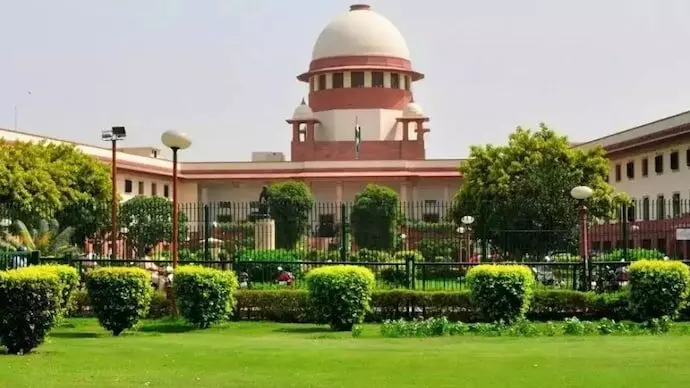Central Government Opposes Criminalization of Marital Rape in Supreme Court Affidavit

The Central Government has filed an affidavit in the Supreme Court on the petition to bring marital rape under the ambit of crime. In this, the Central Government has opposed the petitions demanding to declare marital rape a crime and said that there is no need to make marital rape a crime, it is more a social issue than a legal one. It also said that alternative "suitably formulated punitive measures" are available for this.
It is not within the jurisdiction of the Supreme Court to declare marital rape a crime. The Union Home Ministry supported the existing law, which makes an exception for sexual relations between husband and wife.
The Central Government said that this issue is more social than legal, which has a direct impact on society in general. A decision cannot be taken on this issue without proper consultation with all stakeholders or without taking into account the views of all the states.
The Central Government said that the act prevalent as 'marital rape' should be declared illegal and a crime. Marriage does not terminate the consent of a woman and its violation should result in penal consequences. However, the consequences of such violations within marriage differ from those outside marriage. Violation of consent should be punished differently depending on whether such act has taken place within or outside marriage.
The government said that in marriage there is a continuing expectation of proper sexual relations from one's spouse. Such expectations do not give a husband the right to force his wife to have sex against her will. However, the Centre said that punishing a person under anti-rape laws for such an act may be excessive and disproportionate.
The government said Parliament has already provided various measures to protect the consent of a married woman within marriage. These measures include laws punishing cruelty to married women (Section 498A under the Indian Penal Code), laws punishing acts against the modesty of women and measures under the Protection of Women from Domestic Violence Act, 2005.
It also said that the sexual aspect is one of the many aspects of the relationship between husband and wife, on which the foundation of their marriage rests. Given the nature of the institution of marriage in our socio-legal environment, if the legislature is of the view that for the protection of the institution of marriage, the disputed exception should be retained, then it would not be appropriate for the court to cancel the exception.
The Centre has also described the petitioners' view of considering the institution of marriage as a private institution as wrong and one-sided. It also said that the case of a married woman and her husband cannot be treated like other cases. It is up to the legislature to classify the punitive consequences of sexual abuse differently in different situations. The existing law does not disregard consent for sexual relations between husband and wife but treats it differently only when it is within marriage.
The Centre has also described the petitioners' view of considering the institution of marriage as a private institution as wrong and one-sided. It also said that the case of a married woman and her husband cannot be treated like other cases. It is up to the legislature to categorise the punitive consequences of sexual abuse differently in different situations. The existing law does not disregard consent for sexual relations between spouses, but only treats it differently when it is within marriage.
The Centre, in its affidavit, said this approach is also consistent with the Constitution’s right to equality as it refuses to equate two incomparable situations (in this case, sex within marriage and sex outside marriage). It is committed to the liberty and dignity of women and there is no need to criminalise marital rape as alternative “suitably tailored punitive measures” exist.
